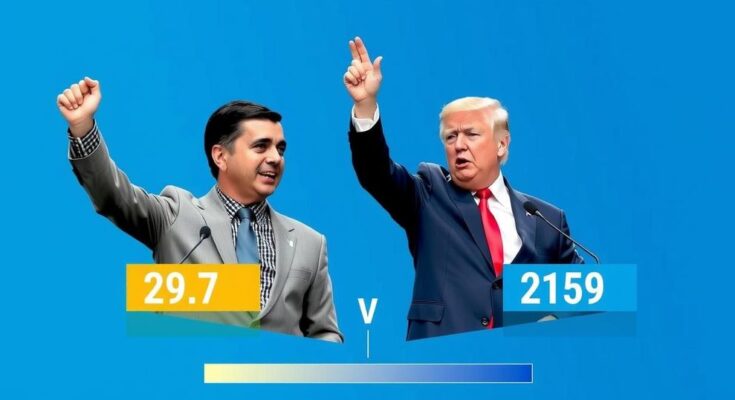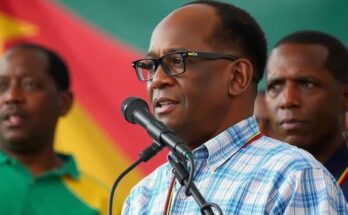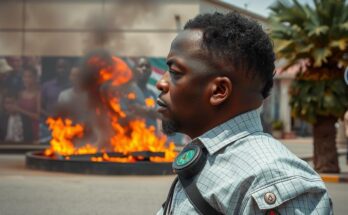Uruguay’s presidential runoff is a competitive race between Álvaro Delgado of the National Party and Yamandú Orsi from the Broad Front. Following a divided initial election, both candidates aim to address rising crime and economic issues amidst widespread voter indecision. With Delgado promising continuity under Lacalle Pou’s leadership and Orsi advocating a new left while maintaining fundamental social policies, the election highlights Uruguay’s complexities in political discourse and public sentiment.
Uruguay’s recent presidential runoff election has transformed into a highly competitive contest between the incumbent conservative party candidate, Álvaro Delgado, and his leftist rival, Yamandú Orsi of the Broad Front coalition. The Broad Front, which governed from 2005 until 2019 and is noted for implementing progressive reforms such as the legalization of abortion and same-sex marriage, garnered 44% of votes in the initial round, while Delgado’s National Party received 27%. The election outcome reflects a divided Congress and indicates a closely contested second round, with a significant portion of voters still undecided as both candidates navigate issues of economic stability, public safety, and social policies.
Delgado, who previously served as Secretary of the Presidency, positions himself as a continuation of the policies of the current President, Luis Lacalle Pou. His approach includes maintaining market-friendly policies and pursuing international trade deals, such as a controversial agreement with China. Conversely, Orsi, a two-time mayor and former history teacher, emphasizes community-oriented crime prevention strategies and aims to create a “new left” in Uruguay while avoiding radical changes to existing social programs. The lack of passionate voter engagement highlights a general consensus on key issues among the candidates and voters, contrasting with more polarized political climates seen elsewhere.
The recent plebiscite outcomes indicate a public hesitation towards expansive pension reforms, favoring fiscal prudence instead, aligning with the sentiments revealed in the current electoral campaigns. This signifies a mature political landscape in Uruguay, where the democratic process remains robust, as underscored by the absence of extreme anti-establishment sentiments evident in some other regions. With both candidates appealing to societal concerns over rising crime rates and economic conditions, the urgency of addressing these issues further intensifies the competition.
Uruguay, with a populace of approximately 3.4 million, has witnessed a transformation in its political landscape, especially following the end of the Broad Front’s long-standing governance in 2019. The current election reflects a shifting dynamic, as the National Party now contends with challenges to maintain its position amid economic recovery and discussions of social reform. Voter apathy and indecision have recently gained prominence, overshadowing previously vibrant political debates. The candidates’ campaigns revolve around urgent concerns, particularly crime and economic stability, indicating a complex interplay of factors influencing voter preferences.
The presidential runoff illustrates a critical juncture for Uruguay as it balances progressive ambitions with economic realities. The close contest between Álvaro Delgado and Yamandú Orsi signifies a nuanced political environment, wherein public satisfaction with governance coexists with unease over crime and inequalities. The electoral process emphasizes Uruguay’s multi-faceted democracy, reflecting broader trends and concerns that resonate with its citizens while navigating the challenges ahead.
Original Source: www.voanews.com




